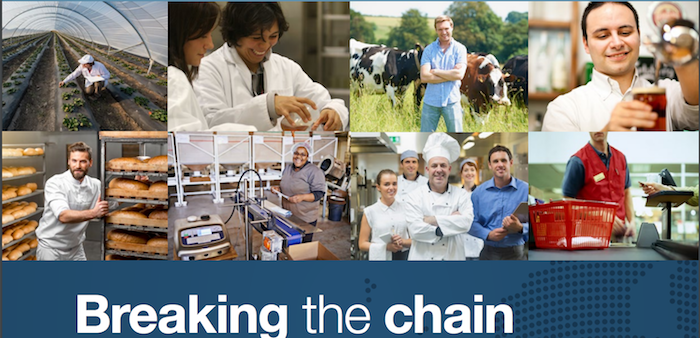- Almost half (47%) of businesses surveyed said EU nationals were considering leaving the UK due to uncertainty surrounding their future.
- Over a third (36%) of businesses surveyed said they would become unviable if they had no access to EU workers
- Almost a third (31%) of businesses surveyed had seen EU nationals leave since the EU referendum.
-
17% of respondents said they would look to relocate overseas if they had no access to EU nationals.
-
Almost three quarters (73%) of respondents said EU workers were concerned about their right to remain in the UK
-
70% of respondents faced challenges when trying to recruit permanent employees locally and 63% said the same for seasonal/temporary positions.
The survey was co-ordinated by the Food & Drink Federation (FDF) and conducted among its members and the following trade bodies: Association of Labour Providers; British Beer and Pub Association; British Hospitality Association; British Retail Consortium; Fresh Produce Consortium; National Farmers Union.
FDF said the survey lays bare the severity of the situation that the UK food and drink supply chain faces without reassurances from Government regarding the future of the two million EU workers across the UK economy, of which 20% are employed across the food and drink supply chain.
Cliff edge
FDF said the Government has been clear in its desire to reduce net migration, but warned the sector faces a rapidly approaching workforce shortage and skills gap which cannot be solved overnight. The industry cannot afford a ‘cliff edge’ which impacts on our ability to grow, produce and serve the food we eat, it said.
The federation called for an ‘orderly transition’ in the number of workers from the EU able to work in the UK after Brexit, warning that an abrupt change would cause ‘significant disruption’ to the whole food and drink supply chain.
While the supply chain is aware of the expectation to reduce reliance on EU workers and is focused on upskilling wherever possible locally within the UK, with record high levels of employment in key geographical locations, FDF said it was often difficult to find local labour availability.
FDF director general Ian Wright said: “Food is a matter of national security, so the results of this report are of central concern to businesses across the ‘farm to fork’ industries. It is only a matter of time before the uncertainty reported by businesses results in an irreversible exit of EU workers from these shores. This is a scenario that will hurt the UK culturally and economically.
“Without our dedicated and valued workforce we would be unable to feed the nation. This is why it is imperative that we receive assurances from Government about their future, and that of our wider workforce.”
FDF’s findings echo those from a survey carried by the National Pig Association a year ago showing 45% of businesses across the pig supply chain would not survive at all without migrant labour, or would be forced to make changes to how they operated.
In light of the findings, the report on the survey, which can be viewed here, includes a number of key recommendations to Government. These include:
Short term
- Legislate to secure the rights of EEA nationals currently in the UK
- Review the recording of immigration data
- Recognise the strategic importance of food and drink supply chain.
Medium term
- Build an attractive and effective migration system
- Ensure no cliff-edge when the UK leaves the EU
- Increase efficiency through adequate Home Office resourcing
Long term
- Investment in skills provision for the food and drink supply chain
- Support access to hard-to-reach labour market solutions
- Allow benefits system to make flexible working easier.




